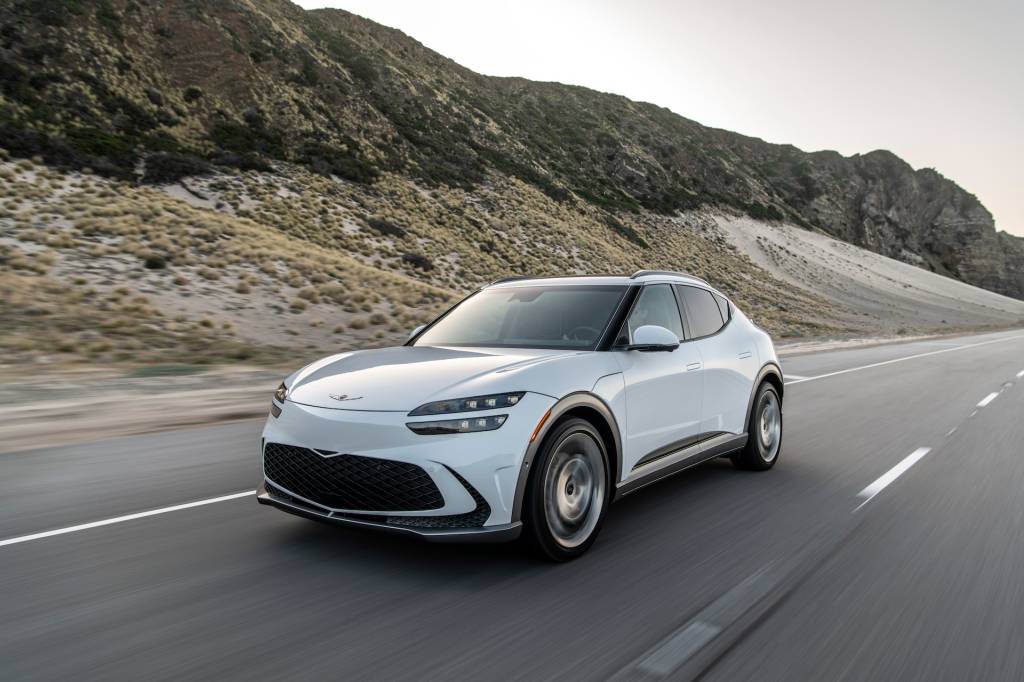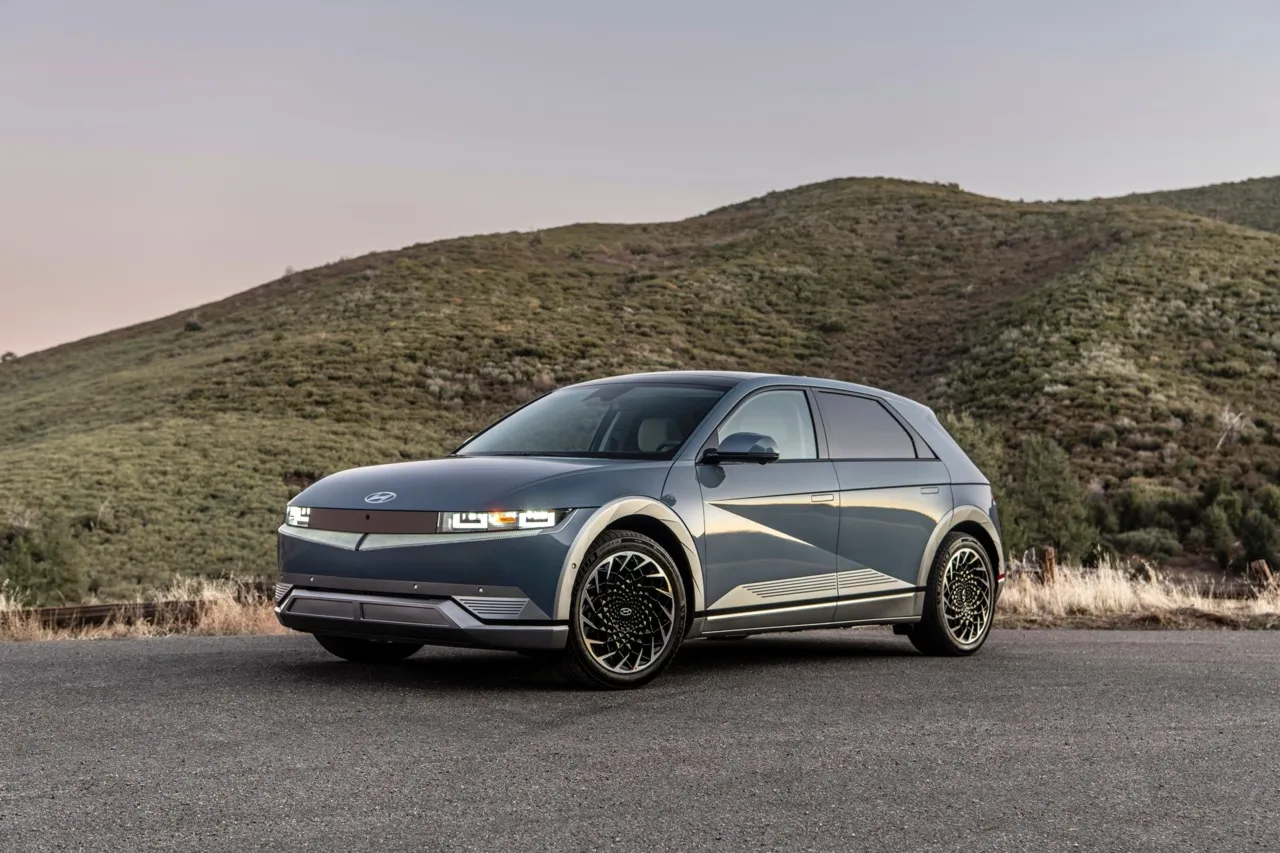Hyundai, Kia, and Genesis are recalling nearly 150,000 EVs in the U.S. over an electronics issue that may cause 12-volt batteries to lose charge while driving.
The recall population includes 98,878 Hyundai and Genesis EVs from model years 2023 and 2024—including the Hyundai Ioniq 5, Hyundai Ioniq 6, Genesis GV60, Genesis Electrified GV70, and Genesis Electrified GV80—as well as 48,232 Kia EV6 electric crossovers from model years 2022 to 2024. That makes 147,110 affected vehicles in total. This follows a recall of nearly 170,000 Hyundai and Kia EVs in South Korea earlier this month for the same issue.
All of these EVs have 12-volt batteries and electrical systems in addition to their high-voltage battery packs. According to the National Highway Traffic Safety Administration (NHTSA), the fault here lies with a component called the Integrated Charging Control Unit (ICCU), which can be damaged and stop charging the 12-volt battery, resulting in a loss of drive power.
2024 Kia EV6 GT
This damage can occur through “various conditions such as overcurrent, over-voltage induced at the end of high-voltage battery charging, and certain thermal loading during operation or driving,” according to recall documents. If a fault is detected, the vehicle will issue warnings—including chimes and dashboard lights—to the driver and enter a “fail-safe” mode in which drive power is gradually reduced.
Owners of affected cars will be contacted by the respective brands regarding when to take their cars to dealerships, where the ICCU and its fuse will be inspected and, if necessary, replaced free of charge. Dealers will also install updated software for the ICCU aimed at decreasing thermal loading and peak voltage. The software also alters the operation of the water pump to further lower thermal loading.

2024 Genesis GV60
Automakers have been very slow to get rid of 12-volt electrical systems in new vehicles. One of the few models that have made the switch is the Tesla Cybertruck, which goes with 48-volt hardware. That’s after years of proposals, including suppliers such as Bosch proposing a vehicle-wide upgrade to 48 volts as part of mild-hybrid upgrades.
Considering how the E-GMP platform used by the Hyundai Ioniq 5 and Ioniq 6, Genesis GV60, and Kia EV6 includes various advancements like 800-volt charging, 48-volt electronics are a surprising omission. Curiously, Hyundai introduced a new solution that does away with the old-style lead-acid 12-volt battery in some of its hybrids—but none of its EVs feature the solution.
Read the full article here




